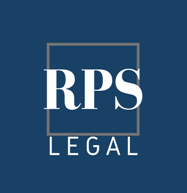Mergers and acquisitions (M&A) in Netherlands refer to the process of combining or acquiring companies or their assets within the Dutch jurisdiction. M&A transactions can be complex and require careful planning, legal advice, and expertise in Dutch corporate law and regulations. Our lawyers in Netherlands can guide you in structuring the deal, ensuring compliance with legal requirements.
Table of Contents
Regulation of mergers and acquisitions in Netherlands
The Dutch Competition Authority (NMA) is the main body that handles all the activities related to mergers and acquisitions in the Netherlands. The main rules of Dutch mergers and acquisitions are contained by the Dutch Competition Act Chapter 5, articles 26 to 42.
The NMA’s merger control policy is aligned with the European competition law, thus delivering a plus of confidence and trust in all the activities related to the merger and acquisition in the Netherlands.
Key aspects of mergers and acquisitions in Netherlands
The term ‘concentration’ states one of the below situations: the merger of two or more legal entities, the creation of a new company from two or more legal entities, which is an autonomous economic entity or the purchase of direct or indirect control in another legal entity.
The two types of notification forms used for the purposes of merger in the Netherlands are the notification stage form (used in the first phase investigation and the license application stage form (used as the second-phase of investigation notification). It is not mandatory to submit both notifications, depending on the type of business performed by the entities involved in Netherlands.
The notification of a concentration is mandatory if in the preceding calendar year, the combined turnover of the participating entities exceeded €113.45 million and at least two of the involved entities realized a turnover of €30 million on Dutch territory. Certain exceptions granted by the minister of economic affairs are also possible (for instance in the health care system).
The following documents are necessary when the notification forms are requested: the most recent copies of the documents on which the decision of merger was made, the most recent annual reports of all the concerned entities, a written power of attorney for the involved parties; and copies of relevant market studies(if applicable) all written in Dutch.
No later than five days after the receipt of the notification, the NMA is requesting any additional information or documents. If the entrepreneur fails to provide such information the concentration will be canceled.
Licensing requirements
When a license is required (when NMA considers that the action of merger or acquisition in Netherlands could lead to significant restrictions in competition) the involved representative must initiate the second review phase by submitting a license application. No later than 13 weeks, NMA will take a decision. In certain cases, when delivering strong evidence that it is in the best interest of the economy to approve the concentration, the NMA may decide that no license will be required even if the concern domain may require it.
The NMA is requesting a charge for each level of notification such as €15,000 when it decides on a merger notification while a decision following a license application will involve a fee of €30,000. Other decisions require a fee of approximately €2,000.
At the end of the process of acquisition or merger in the Netherlands, the NMA publishes a notification, or license application, by submitting a notice in the Dutch State Gazette.
Certain exceptions from the above are granted by the “Simplified Procedure for Merger Notifications” introduced by NMA and applicable in case a license is not necessary or if there are no objections from third parties or agencies involved.
The obligation to deliver transaction notifications is the responsibility of the merging parties (in merger situations) or the acquiring party (in an acquisition case).
Friendly and hostile takeover bids
In the context of mergers and acquisitions in Netherlands, friendly and hostile takeover bids refer to different approaches by potential acquirers when trying to purchase a target company.
A friendly takeover bid occurs when a potential acquirer approaches the target company’s management and board cooperatively and collaboratively. The target company’s management is receptive to the idea of being acquired and may be willing to negotiate. The target company’s board may support the bid, provide access to due diligence information, and even recommend the offer to its shareholders.
A hostile takeover bid takes place when a potential acquirer seeks to purchase the target company without the consent or cooperation of the target’s management and board.
In both cases, it is recommended to consult with our Dutch law firm, for a successful acquisition.
Due diligence in mergers and acquisitions in Netherlands
Due diligence in mergers and acquisitions in Netherlands includes investigating and evaluating a target company’s financial, legal, operational, and other relevant aspects. The primary goal of due diligence is to gather information and assess the risks and opportunities associated with the potential acquisition. Our law firm in Netherlands can handle due diligence processes in this context.
This investigation in the due diligence process is based on both publicly available information and non-public information provided by the target company. In the case of a friendly bid, the target company’s management board may allow the bidder to conduct a limited due diligence investigation while maintaining confidentiality. In a hostile bid, there is no specific obligation for the target company to grant due diligence access to a hostile bidder.
Roles of shareholders in mergers and acquisitions transactions
Shareholders in mergers and acquisitions transactions in Netherlands have the power to approve or reject the deal and protect their interests through voting and specific rights.
Shareholders of the target company have certain rights that are outlined in the company’s articles of association or a shareholder agreement. These rights are designed to protect the interests of the shareholders during the acquisition process. Our Dutch lawyers will explain some of these rights:
- Requirement of prior approval – shareholders may have the right to approve or disapprove the acquisition through a vote in the shareholders’ meeting;
- Pre-emptive rights – shareholders may have the option to purchase additional shares in proportion to their existing holdings before the acquisition takes place;
- Tag-along and drag-along rights – minority shareholders can join in the sale (tag-along) or be forced to sell (drag-along) their shares if a majority shareholder decides to sell their stake;
- Anti-dilution rights – shareholders might be protected from losing their ownership if the company’s value goes down because of the deal.
Mergers and acquisitions in Netherlands can be complex, but our team can assist you.
The operations of mergers and acquisitions in the Netherlands are visible annually in the report published by NMA. Our team of Dutch lawyers can assist you in a merger or an acquisition and can also help you open a bank account in Netherlands.
Statistics about mergers and acquisitions in Netherlands
If you wish to discover more about mergers and acquisitions in Netherlands, our team has gathered some interesting statistics for you:
- The transaction value in the mergers and acquisitions market in 2023 in Netherlands was valued at 20.8 billion USD;
- 87 transactions were done in 2023;
- The average transaction value was estimated at 0.32 billion USD in 2023.
Investors who purchase an existing company in the Netherlands, as well as those engaged in a merger process with a Dutch company, can receive more information about taxation from our team. We also provide assistance for Dutch VAT registration and we provide clients with essential information about VAT filing, payment and general compliance. You can reach out to us for more information.
Whenever you need qualified accounting services in the Netherlands you are welcome to contact our Dutch accounting firm for support and assistance.

